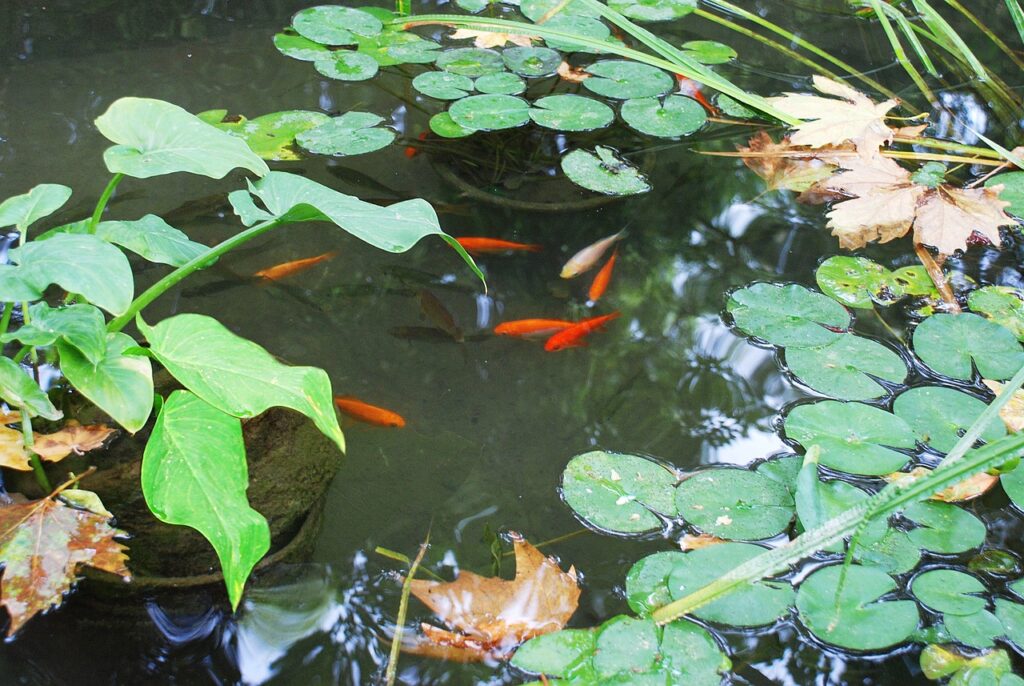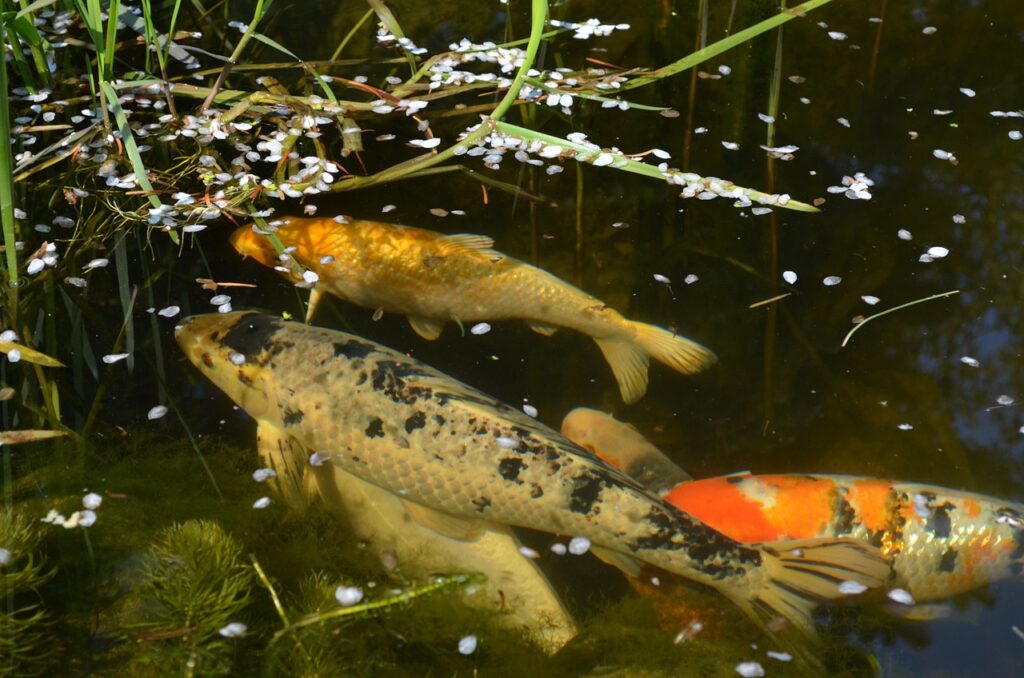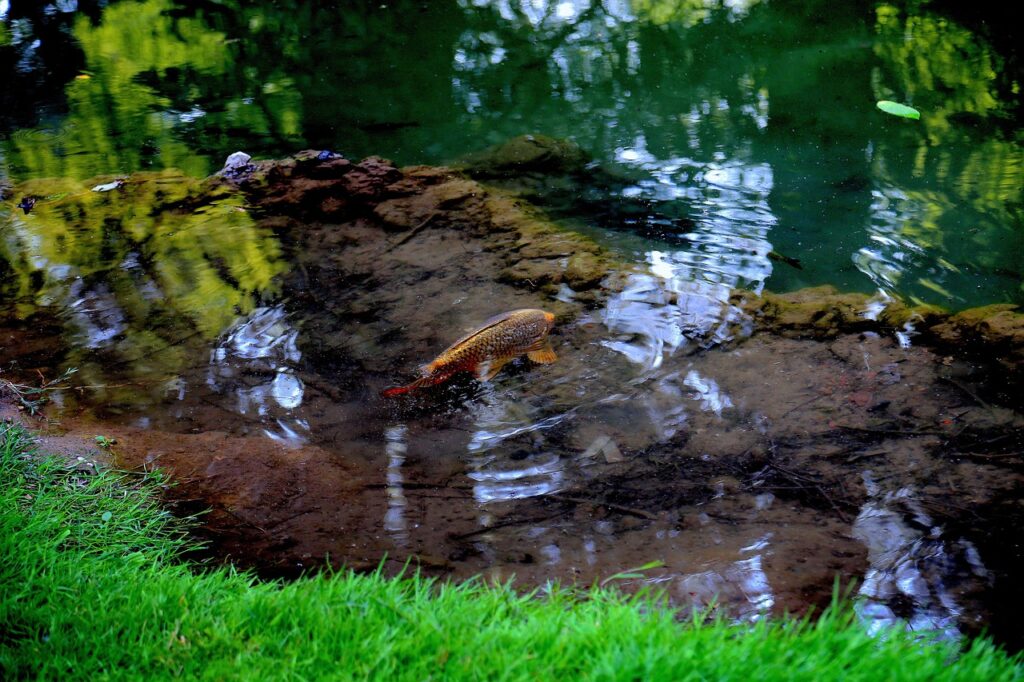You’ve noticed your pond fish aren’t as lively as they used to be, and the reason might be due to some unwelcome intruders. We will explain why roundworms are plaguing your pond fish, as these tiny parasitic invaders can wreak havoc in your pond ecosystem, affecting the health and vitality of your cherished fish.
This article reveals how these pests make their way into your water haven, the signs to look out for, and effective steps you can take to reclaim the well-being of your aquatic friends. By understanding the life cycle of roundworms and implementing preventive measures, you can ensure your pond remains a thriving sanctuary for your fish.
Understanding Roundworms
Before we get too deep, it’s essential to understand what roundworms are. Roundworms, or nematodes, are microscopic, unsegmented worms with tubular bodies that can infect various animals, including fish. While some nematodes are free-living, many are parasitic and pose health risks to pond fish.
What Do Roundworms Look Like?
Roundworms are typically slender and cylindrical, and they can vary in size. You may not always see them, but under the microscope, they appear like tiny strands of spaghetti. Some may even have distinct features, like hooks or sucking structures, that help them attach to their hosts.

The Life Cycle of Roundworms
The life cycle of roundworms involves several stages, usually starting as eggs, then hatching into larvae, and finally maturing into adults. Understanding their life cycle can be crucial to managing and preventing infestations.
| Stage | Description |
|---|---|
| Egg | Laid in the environment or inside the host. |
| Larva | Emerges from the egg and often goes through multiple stages. |
| Adult | Matures in the host and reproduces, laying more eggs. |
How Do Roundworms Invade?
Now that you have a basic understanding of what roundworms are, let’s move on to how these pests find their way into your pond. There are several common pathways for these uninvited guests to make their appearance.
Contaminated Water Sources
One of the primary way roundworms find their way into your pond is through contaminated water sources. If you are adding water from untreated sources, it might already carry roundworm eggs or larvae.
New Inhabitants
Adding new fish or plants to your pond without proper quarantine and treatment can introduce roundworms. New fish may carry roundworms without showing immediate symptoms.
Poor Pond Hygiene
Neglecting the cleanliness of your pond can create an excellent breeding ground for parasites, including roundworms. Organic debris, like fallen leaves and uneaten food, can contribute to poor water conditions.
Symptoms of Roundworm Infestation
If you suspect your pond fish are under siege by roundworms, certain signs can help you confirm your suspicions. Recognizing these symptoms early on can go a long way in mitigating damage.
Physical Symptoms
- Weight Loss: Infected fish often display gradual weight loss even if they’re eating normally.
- Swollen Abdomen: Some fish might exhibit a bloated appearance.
- Visible Worms: In severe cases, you might see worms coming out of the fish’s anus.
Behavioral Symptoms
- Lethargy: Infected fish might swim slowly or become less active.
- Erratic Swimming: You may notice unusual swimming patterns or fish rubbing against objects.
General Health Symptoms
- Loss of Appetite: Fish may eat less or refuse food altogether.
- Mucus Production: Excessive mucus on the fish’s body can be an indicator of stress due to parasitic infection.
Diagnosis and Testing
Once you notice symptoms, the next step is to diagnose the issue correctly. Accurate diagnosis can be achieved through a few different methods.

Visual Inspection
Performing a visual inspection can help you identify signs of roundworms. Use a magnifying glass to examine your fish closely. Check for any visible worms around the fish’s anus or in their faeces.
Microscopic Examination
For a more accurate diagnosis, you could collect a faecal sample and have it examined under a microscope. This method can reveal the presence of roundworm eggs or larvae.
Professional Consultation
If you’re not confident in your diagnostic abilities, consult a veterinary professional experienced in aquaculture. They can perform more comprehensive tests and confirm the presence of roundworms.
Treatment Options
Now, let’s talk solutions. Luckily, there are multiple ways to treat roundworm infestations in your pond fish.
Medicated Feeds
One common treatment involves using medicated feeds that contain anti-parasitic agents. These feeds are designed to be palatable and effective at reducing parasite loads.
Water Treatments
Using chemical treatments in the water can also help to control roundworm infestations. Always follow product guidelines and consult a professional to ensure you’re using the right treatment for your specific situation.
Quarantine and Isolation
If possible, isolate infected fish to prevent the spread of roundworms to healthy individuals. Set up a quarantine tank with optimal conditions to treat the affected fish separately.
Natural Remedies
Some pond owners prefer natural treatments like adding garlic or specific herbal extracts to the fish’s diet. While these methods can sometimes be effective, they should not replace standard medical treatments without consulting a professional.

Preventative Measures
Prevention, as they say, is better than cure. Taking steps to prevent roundworm infestations can save you a lot of hassle and maintain the health of your pond ecosystem.
Quarantine New Additions
Always quarantine new fish or aquatic plants before introducing them to your pond. A 2-4 week quarantine period can help identify and treat any hidden parasites.
Regular Pond Maintenance
Keeping your pond clean and well-maintained is crucial. Regularly remove organic debris, monitor water quality, and clean filters to minimize the risk of infestations.
Routine Health Checks
Perform routine health checks on your pond fish. Regular observations can help you spot symptoms early and take action before the situation escalates.
Quality Food
Feeding your fish high-quality, well-balanced food can boost their immune system, making them less susceptible to infections. Avoid overfeeding, as leftover food can degrade water quality.
When To Call a Professional
Sometimes, despite your best efforts, things may not improve. Don’t hesitate to call in a professional if you find yourself in such a predicament.
Persistent Infestations
If roundworm infestations persist despite treatment, it’s time to consult a veterinary professional. They can implement more aggressive treatments and provide expert advice.
Advanced Symptoms
If your fish display advanced symptoms like severe weight loss, significant lethargy, or extensive physical abnormalities, professional intervention is needed.
Common Misconceptions
Understanding common misconceptions can help you make informed decisions. Let’s clear up some myths about roundworms in pond fish.
Roundworms Only Affect Dirty Ponds
While poor pond hygiene can contribute to infestations, roundworms can invade even well-maintained ponds through other means, like new fish or contaminated water.
Natural Treatments Are Always Safe
While natural remedies can be useful, they are not always effective or safe. Always consult with a professional before trying alternative treatments.
Removing Infected Fish Solves the Problem
Simply removing infected fish won’t solve the problem entirely. The remaining fish and water might still harbor eggs or larvae. Comprehensive treatment and preventive measures are essential.
The Emotional Toll
Dealing with a roundworm infestation can be emotionally taxing. Watching your fish suffer isn’t easy, but remember, you’re not alone. Many pond owners have faced and overcome this challenge. Support groups and online forums can offer valuable advice and encouragement.
Personal Stories
Allow me to share a story. A pond owner like you named Jake noticed his fish gradually losing their vibrant colors and becoming lethargic. After some research and professional advice, he identified roundworms as the culprit. By implementing a targeted treatment plan and improving his pond maintenance routine, Jake was able to restore his pond’s health. His fish are now thriving, and his pond is a source of joy once again.
Your efforts can yield similar results. With proper diagnosis, treatment, and prevention, you can reclaim the beauty and vitality of your pond.

Why Roundworms Are Plaguing Your Pond Fish?
Addressing a roundworm infestation may seem daunting, but armed with the right knowledge and tools, you can tackle this issue head-on. From understanding the life cycle of roundworms to implementing effective treatments and taking preventative measures, you have all the information you need to protect your pond fish from these uninvited guests.
Isn’t it time you took a proactive approach to ensure the health and happiness of your aquatic friends? By staying vigilant and attentive, you can create a thriving pond environment free from the harmful effects of roundworms.
Your pond fish depend on you to maintain a safe and healthy habitat. Are you ready to take the necessary steps to keep these uninvited guests at bay? Let’s make your pond a serene and vibrant sanctuary once again.
